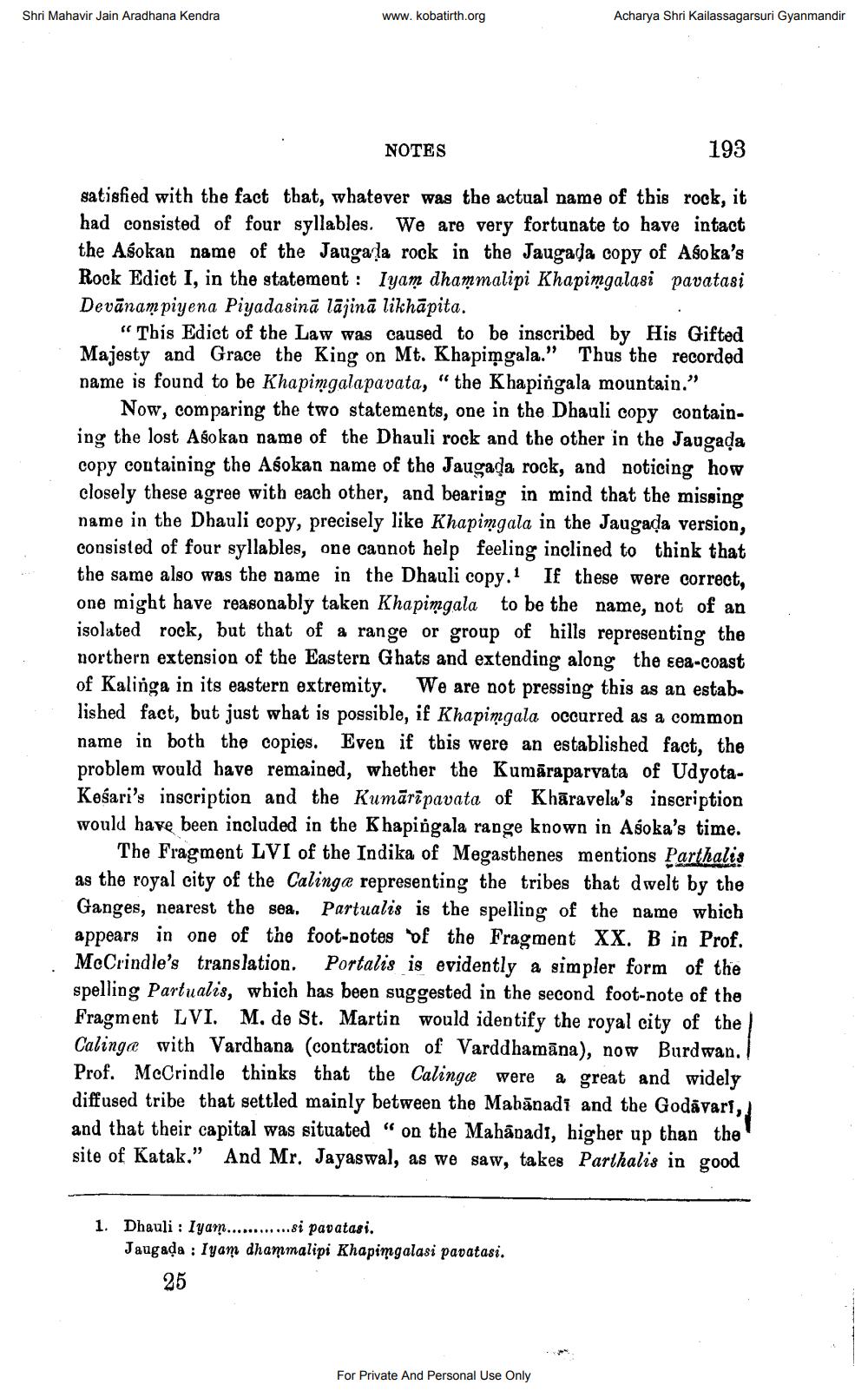________________
Shri Mahavir Jain Aradhana Kendra
www.kobatirth.org
NOTES
193
satisfied with the fact that, whatever was the actual name of this rock, it had consisted of four syllables. We are very fortunate to have intact the Asokan name of the Jaugada rock in the Jaugada copy of Asoka's Rock Edict I, in the statement: Iyam dhammalipi Khapimgalasi pavatasi Devanam piyena Piyadasinā lājinā likhāpita.
"This Edict of the Law was caused to be inscribed by His Gifted Majesty and Grace the King on Mt. Khapimgala." Thus the recorded name is found to be Khapimgalapavata, "the Khapingala mountain."
Acharya Shri Kailassagarsuri Gyanmandir
Now, comparing the two statements, one in the Dhauli copy containing the lost Asokan name of the Dhauli rock and the other in the Jaugada copy containing the Asokan name of the Jaugada rock, and noticing how closely these agree with each other, and bearing in mind that the missing name in the Dhauli copy, precisely like Khapimgala in the Jaugaḍa version, consisted of four syllables, one cannot help feeling inclined to think that the same also was the name in the Dhauli copy. If these were correct, one might have reasonably taken Khapimgala to be the name, not of an isolated rock, but that of a range or group of hills representing the northern extension of the Eastern Ghats and extending along the sea-coast of Kalinga in its eastern extremity. We are not pressing this as an established fact, but just what is possible, if Khapimgala occurred as a common name in both the copies. Even if this were an established fact, the problem would have remained, whether the Kumaraparvata of UdyotaKesari's inscription and the Kumaripavata of Kharavela's inscription would have been included in the Khapingala range known in Asoka's time. The Fragment LVI of the Indika of Megasthenes mentions Parthalis as the royal city of the Calinga representing the tribes that dwelt by the Ganges, nearest the sea. Partualis is the spelling of the name which appears in one of the foot-notes of the Fragment XX. B in Prof. McCrindle's translation. Portalis is evidently a simpler form of the spelling Partualis, which has been suggested in the second foot-note of the Fragment LVI. M. de St. Martin would identify the royal city of the Calinga with Vardhana (contraction of Varddhamana), now Burdwan. Prof. McCrindle thinks that the Calinga were a great and widely diffused tribe that settled mainly between the Mahanadi and the Godavari, and that their capital was situated "on the Mahanadi, higher up than the site of Katak." And Mr. Jayaswal, as we saw, takes Parthalis in good
1. Dhauli Iyamsi pavatasi.
Jaugada Iyam dhammalipi Khapimgalasi pavatasi.
25
For Private And Personal Use Only




